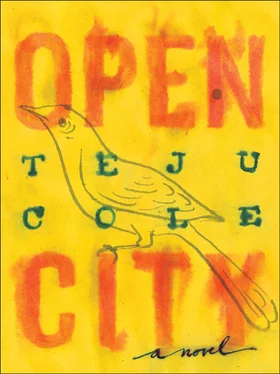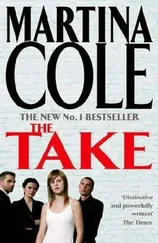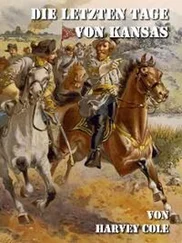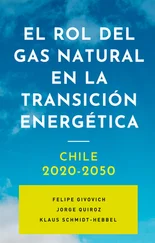I greeted the doorman in the dark, low-ceilinged foyer and took the elevator to the third floor. When I entered the apartment, Professor Saito called out. He was seated at the far end of the room, near large windows, and he beckoned me over to the chair in front of him. His eyes were weak, but his hearing had remained as sharp as when I had first met him, back when he was a mere seventy-seven. Now, bunched up in a soft, large chair, swaddled in blankets, he looked like someone who had gone deep into the second infancy. But that wasn’t altogether the case: his mind, like his hearing, had remained acute and, as he smiled, the wrinkles spread all over his face, creasing the paper-thin skin on his forehead. In that room, into which always seemed to flow a gentle and cool northern light, he was surrounded by art from a lifetime of collecting. A half dozen Polynesian masks, arranged just above his head, formed a large dark halo. In the corner stood a life-size Papuan ancestor figure with individually carved wooden teeth and a grass skirt that barely concealed an erect penis. Referring to this figure, Professor Saito had once said: I adore imaginary monsters, but I am terrified of real ones.
From the windows that ran the length of that side of the room, the shadowed street was visible. Beyond it was the park, which was demarcated by an old stone wall. I heard a roar from the street just as I was sitting down; I quickly got up again and saw a man running alone through the alley that had been created by the crowd. He wore a golden shirt, with black gloves that somehow reached up to his elbows, like a lady’s at a formal dinner, and he had begun to sprint with renewed energy, buoyed by the cheers. He raced, his energies revived, toward the bandstand, the fervent crowd, the finish line, and the sun.
Come, sit, sit. Professor Saito coughed as he motioned toward the chair. Tell me how you are doing; you see, I’ve been sick; it was bad last week, but it’s much better now. At my age, one falls sick a lot. Tell me, how are you, how are you? The noise outside rose again, and ebbed. I saw the runners-up dash through, two black men. Kenyans, I guessed. It’s like this every year, for almost fifteen years now, Professor Saito said. If I have to go out on the day of the marathon, I use the building’s rear entrance. But I don’t go out much anymore, not with that attached to me, pinned to me like a tail on a dog. As I settled into the chair, he pointed to the transparent bag hanging on a little metal pole. The bag was half full of urine, and a plastic tube led to it from somewhere under the nest of blankets. Someone brought me persimmons yesterday, lovely, firm persimmons. Would you like some? Really, you should try them. Mary! The nurse-aide, a tall, strongly built, middle-aged woman from St. Lucia whom I had met on previous visits, appeared from the corridor. Mary, would you please bring our guest some persimmons? After she disappeared into the kitchen, he said, I find chewing a bit difficult these days, Julius, so something as rich and available as a persimmon is perfect for me. But enough about this, how are you? How is work?
My presence energized him. I told him a little about my walks, and wanted to tell him more but didn’t have quite the right purchase on what it was I was trying to say about the solitary territory my mind had been crisscrossing. So I told him about one of my recent cases. I had had to consult with a family, conservative Christians, Pentecostals, who had been referred by one of the pediatricians at the hospital. Their thirteen-year-old son, their only child, was about to undergo a leukemia treatment that posed a serious later risk of infertility. The pediatrician’s advice to them was that they have some of the boy’s semen frozen and stored, so that when he became a man and got married, he could artificially inseminate his wife and have children of his own. The parents were open to the idea of sperm storage, and had nothing against artificial insemination, but were resolutely opposed, for religious reasons, to the idea of letting their son masturbate. There was no straightforward surgical solution to the conundrum. The family was in crisis over it. They consulted with me, and after a few sessions, and after much prayer on their part, they decided to risk not having grandchildren. They simply could not let their boy commit what they called the sin of onanism.
Professor Saito shook his head, and I could see that he had enjoyed the story, that its strange and unhappy contours had amused him (and troubled him) in the same way they had me. People choose, he said, people choose, and they choose on behalf of others. And what about outside your work, what are you reading? Mostly medical journals, I said, and then many other interesting things that I begin and am somehow unable to finish. No sooner do I buy a new book than it reproaches me for leaving it unread. I don’t read much either, he said, with the state my eyes are in; but I have enough tucked away up here. He motioned to his head. In fact, I’m full. We laughed, and just then Mary brought in the persimmons, in a porcelain saucer. I ate half of one; it was a little oversweet. I ate the other half, and thanked him.
During the war, he said, I committed many poems to memory. I suppose that expectation is gone from the schools now. I saw the change during the time I was at Maxwell, how the later generations that came in had little of this preparation. For them, memorization was a pleasant diversion that came with a specific course; for their forebears of thirty or forty years before, there was a strong connection to the life of poems that came with having memorized several. College freshmen had a corpus of works with which they already had a relationship, even before they stepped into a college-level English literature class. For me, in the forties, memorization was a helpful skill, and I called on it because I couldn’t be sure I would see my books again, and anyway, there wasn’t much to do at the camp. We were all confused about what was happening; we were American, had always thought ourselves so, and not Japanese. There was all this time of confused waiting, harder for the parents, I think, than for the children, and in that waiting time, I stuffed bits of the Prelude , and Shakespeare’s sonnets, and large tracts of Yeats into my head. Now I don’t remember the exact words of any of them anymore, it’s been too long, but I need only the environment created by the poems. Just one or two lines, like a little hook — he demonstrated with his hand — just one or two, and that’s enough to snag everything, what the poem says, what it means. Everything follows the hook. In summer season when soft was the sun, I wore a shroud as I a shepherd were . Do you recognize it? I don’t suppose anyone memorizes anything anymore. It was part of our discipline, just as a good violinist has to have his Bach partitas or Beethoven sonatas by heart. My tutor at Peterhouse was Chadwick, an Aberdonian. He was a great scholar; he’d been taught by Skeat himself. Haven’t I ever told you about Chadwick? A grouch through and through, but it was he who first taught me the value of memory, and how to think of it as mental music, a setting to iambs and trochees.
His reverie took him out of the everyday, away from the blankets and the bag of urine. It was the late thirties again, and he was back in Cambridge, breathing the damp air of the fens, enjoying the tranquillity of his youthful scholarship. At times, it seemed as though he was talking more to himself, but he suddenly asked a direct question and, interrupted from my own little train of thought, I scrambled for an answer. We reprised the old relationship, student and teacher, and he continued steadily, regardless of whether my responses were accurate or not, whether I took Chaucer for Langland or Langland for Chaucer. An hour went by quickly, and he asked if we could pause there for the day. I promised to return soon.
Читать дальше












